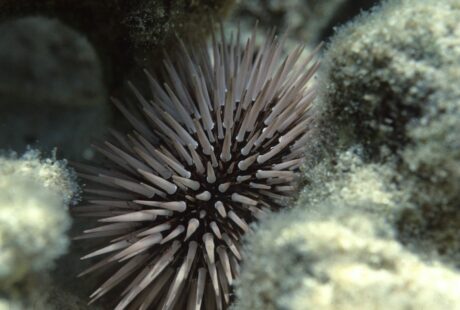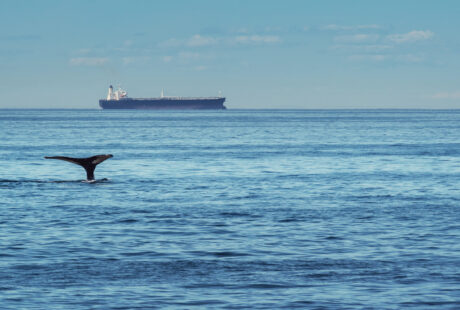This week, the UN’s International Maritime Organization (IMO) must agree on an effective program of action and next steps to reduce the impact of ship-source underwater noise on marine life. Seas at Risk and the Clean Arctic Alliance are today calling for urgent action to address the impact of underwater noise from ships on ocean wildlife, as a meeting of the IMO Sub-Committee on Ship Design and Construction (SDC) opens in London (23-27th January).
The SDC Sub-committee is tasked with revising the IMO’s 2014 Guidelines on the Reduction of Underwater Noise from Shipping, and to identify next steps and a program of action to further prevent and reduce underwater noise. The committee has already identified the barriers that have limited the uptake and implementation of the 2014 guidelines. Chief among these barriers is the non-mandatory nature of the guidelines, and Seas at Risk and the Clean Arctic Alliance are pushing for a move to legally-binding regulation of ship-source underwater noise to protect ocean biodiversity.
For many marine organisms sound is the most important means of communication. Under water, vision is very restricted and without good hearing ability, elementary functions such as navigating, finding prey and partners can be hampered. This is of particular importance for marine mammals.
Sian Prior, Clean Arctic Alliance, said: “This week, the IMO must urgently address the impacts of underwater noise pollution on the health of marine wildlife, including whales, dolphins and fish. Given the voluntary nature of the IMO’s underwater noise guidelines is the biggest barrier to their implementation, both the program of action and next steps identified by the committee during this week’s meeting must include recommendations for compulsory measures. The non-binding nature of the current guidelines, which have not been updated since 2014, appears to have led to a de-prioritisation of the need for action by the shipping sector – and this is resulting in increasing noise levels in the ocean, including the Arctic – where underwater noise from increased shipping is having a much greater impact.”
Find out more here.
Posted on: 23 January 2023



